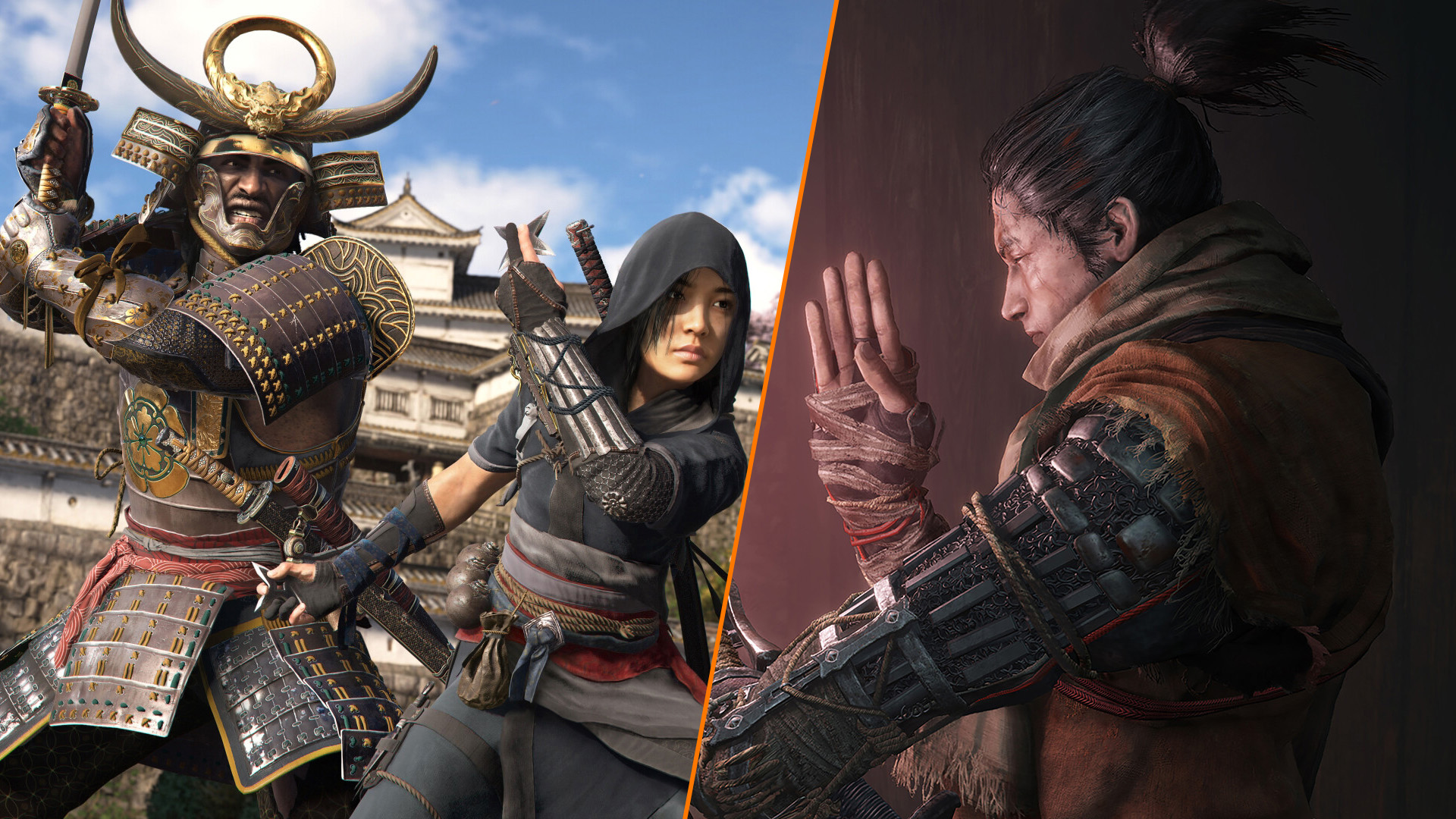
(Image credit: Ubisoft / FromSoftware / Activision)
Timing is a crucial skill across various crafts, from music to cooking. Video games, too, often demand an understanding of rhythm to succeed. While this is obvious in games like Dance Dance Revolution and Guitar Hero, it’s also a key element in action-RPGs, including Assassin’s Creed Shadows.
In this game, protagonists Naoe and Yasuke can parry enemies who glow blue. This system deviates from the game’s red attacks that necessitate dodging instead of blocking. While evasion is an option, mastering the parry opens a window for attack, leaving the enemy vulnerable. However, the timing did take me by surprise.
Assassin’s Creed Shadows review: “A titan in the same leagues as series staples like Assassin’s Creed 2 and Assassin’s Creed 4: Black Flag – and Ubisoft’s best RPG to date.”
Recently, I’ve been immersed in Sekiro: Shadows Die Twice, known as the least “Soulsy” of Hidetaka Miyazaki’s FromSoftware titles, as it lacks weapon and build variety. This game challenges you to become a master of the sword, demanding expertise not only in offense but in defense as well, akin to that seen in Lies of P.
After dedicating nine hours to Sekiro, I adjusted to its precise timings. Parrying is integral but challenging, especially for someone like myself who’s not exactly quick on reflexes. My time with the 2023 Soulslike title Lies of P further complicated things.
Built around a parry mechanic, Lies of P offers extensive RPG elements with diverse weapons and stats. Although it’s possible to defeat enemies without parrying, embracing its rhythm is essential, particularly if you’re aiming to conquer the final optional boss. Here, the parry window is even tighter than in Sekiro: Shadows Die Twice.
Now, after 90-plus hours in Lies of P, switching to Sekiro‘s rhythm was a challenge, but I adapted, learning patience and attention. Sadly, Assassin’s Creed Shadows presented a fresh challenge.
With a different beat, Ubisoft’s game requires you to parry when the enemy glows blue, offering a wider timing window compared to the instantaneous demand of Sekiro or Lies of P. My muscle memory, trained for precision, struggles with this generosity.
The result? Missteps for Naoe and Yasuke, all courtesy of my own habits. Despite 20 hours in Ubisoft’s feudal Japan, I constantly remind myself to adjust. Changing difficulty in Assassin’s Creed doesn’t alleviate this, as it’s not trying to mimic a Soulslike, which I respect.
What I truly want is to relish the rhythmic combat and its patience-testing nature. The satisfaction of a perfectly timed guard stands out in Naoe and Yasuke’s adventure. Yet, Miyazaki’s dramatic combat style has captured my mind, making Assassin’s Creed Shadows eternally challenging.
If you’re seeking a test of your skills, explore the 10 best FromSoftware games you can play now.